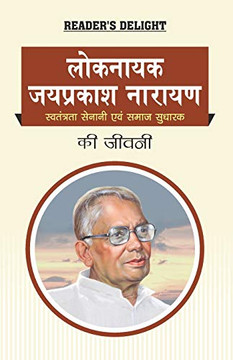
Black Eagle Books
Selected Stories of Rumjhum Nayak
Product Code:
9781645605669
ISBN13:
9781645605669
Condition:
New
$20.90
The first story - The Aroma of Kewda Flowers, is a result of a life almost lost and broken. The first love fails without any convincing reason. The lovers have never opened up to each other, rather they never tried, may be a chance factor plays an uncanny mischief, as a result Deepak and her infatuated girl friend drift apart. The woman, an IT professional maries a "shadow" for the "substance" never appears as except in a bitter grimace of memory in the narrator's monologue. The marriage fails, life flows as rocky beds but the aroma of Kewda's haunted her till the end. The poverty and fate-freewill conflict of the traditional stories narrated the pair of hunger, torture and victimhood. In the shifting paradigms of life when poverty is here, freedom is palpable and the human will is free to make choices in life, we get the same conflict (interval) and failure. Life is lost without a search for meaning. In the Lonely Bird (Eka Eka Pakhi Tie) almost the same failure of communication between winds, hearts and other civilized nuances. Desire for union is not dead but one takes the first step for reaching forward. The live confinements were limited, although today the internet is the connecting web. But the author by using the speech rhythms of modern people and by inter sparring the spoken Odia with English words is clearly reflected with our new reality. The cultural, moral and spiritual inheritance are all wasted in our bid to be of relevance on the digital civilization of present. The characters seem to be uprooted and never try to find or grow roots. The two stories which have reassured me that humanity is not lost, the goodness is not lost and humans can make their own fate even without education if they are assessed with some love and passion. Those two are in search of Happiness and the last Bouquet. Chemi and Sapana fight their imposed fate with their native talents. Chemi is in the rural area with inherited talents of making Ghee Pitha, "Chuda Muan" and Arisa etc. which every young girl learnt from their mothers or grandma's - It was a continuity of culture even in the midst of poverty and fatalism. Chemi and Sapana show us prove that by honest efforts, anyone can be self sufficient successful. Perhaps the tribe of good men are not dead. Rumjhum Nayak's narrative style and choice of vocabulary are engaging. She has a sense of 'beginning and end'. No unnecessary lingering on emotional brooding. Her narrative structure is compact and focused.
| Author: Rumjhum Nayak |
| Publisher: Black Eagle Books |
| Publication Date: Aug 07, 2024 |
| Number of Pages: NA pages |
| Language: English |
| Binding: Paperback |
| ISBN-10: 1645605663 |
| ISBN-13: 9781645605669 |

Selected Stories of Rumjhum Nayak
$20.90
The first story - The Aroma of Kewda Flowers, is a result of a life almost lost and broken. The first love fails without any convincing reason. The lovers have never opened up to each other, rather they never tried, may be a chance factor plays an uncanny mischief, as a result Deepak and her infatuated girl friend drift apart. The woman, an IT professional maries a "shadow" for the "substance" never appears as except in a bitter grimace of memory in the narrator's monologue. The marriage fails, life flows as rocky beds but the aroma of Kewda's haunted her till the end. The poverty and fate-freewill conflict of the traditional stories narrated the pair of hunger, torture and victimhood. In the shifting paradigms of life when poverty is here, freedom is palpable and the human will is free to make choices in life, we get the same conflict (interval) and failure. Life is lost without a search for meaning. In the Lonely Bird (Eka Eka Pakhi Tie) almost the same failure of communication between winds, hearts and other civilized nuances. Desire for union is not dead but one takes the first step for reaching forward. The live confinements were limited, although today the internet is the connecting web. But the author by using the speech rhythms of modern people and by inter sparring the spoken Odia with English words is clearly reflected with our new reality. The cultural, moral and spiritual inheritance are all wasted in our bid to be of relevance on the digital civilization of present. The characters seem to be uprooted and never try to find or grow roots. The two stories which have reassured me that humanity is not lost, the goodness is not lost and humans can make their own fate even without education if they are assessed with some love and passion. Those two are in search of Happiness and the last Bouquet. Chemi and Sapana fight their imposed fate with their native talents. Chemi is in the rural area with inherited talents of making Ghee Pitha, "Chuda Muan" and Arisa etc. which every young girl learnt from their mothers or grandma's - It was a continuity of culture even in the midst of poverty and fatalism. Chemi and Sapana show us prove that by honest efforts, anyone can be self sufficient successful. Perhaps the tribe of good men are not dead. Rumjhum Nayak's narrative style and choice of vocabulary are engaging. She has a sense of 'beginning and end'. No unnecessary lingering on emotional brooding. Her narrative structure is compact and focused.
| Author: Rumjhum Nayak |
| Publisher: Black Eagle Books |
| Publication Date: Aug 07, 2024 |
| Number of Pages: NA pages |
| Language: English |
| Binding: Paperback |
| ISBN-10: 1645605663 |
| ISBN-13: 9781645605669 |





